Rustam Minnikhanov: ‘It is not graduates who need to find jobs, but the heads of these useless vocational schools’
The rais of Tatarstan suggested the presence of a corruption component in schools where the honor students did not overcome the minimum threshold of the Unified State Exam
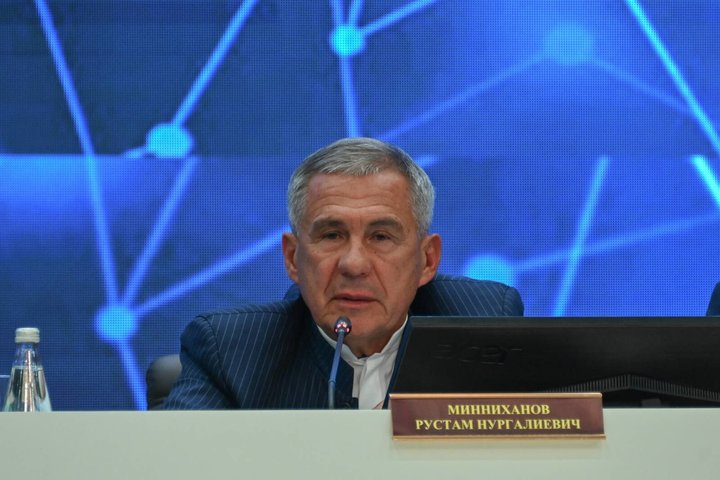
The low results of GIA (State Final Examination), a shortage of teaching staff, not the right ones, graduates of vocational schools and adult problems of schools were discussed in Laishevo at the republican meeting of education and science workers, held under the slogan “Leadership in education: strategic guidelines and technologies” on 15 August. For what the rais of Tatarstan criticised the education workers, what Minister Ilsur Khadiullin asked him about and what kind of “trap” employers want to prepare for graduates planning to build a career outside the region — read in the report of Realnoe Vremya.
Honor students-low scorers
Minister of Education of Tatarstan Ilsur Khadiullin announced a big embarrassment at the traditional August pedagogical council: a number of school honor students and B students did not even gain the minimum number of points at the Unified State Exam, and some ninth graders failed exams twice in the disciplines they had excellent annual grades.
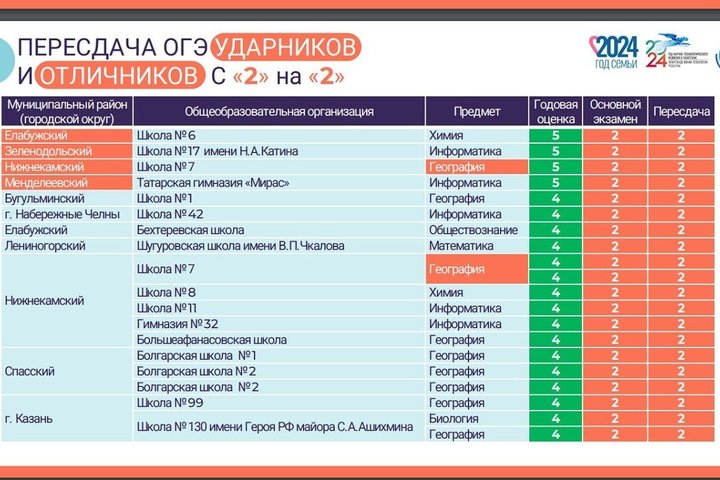
“This situation leads to the justified indignation of parents who believe in the objectivity of school assessment," the minister carefully hinted at the likely “overestimation” of grades in schools for the sake of good reports.
At the end of Ilsur Khadiullin's report, Tatarstan rais Rustam Minnikhanov expressed gratitude to him for the “good analytics” and objective information that he presented without trying to smooth out acute problems. He also hinted at possible “purges” in the ranks of those who act differently:

The rais of Tatarstan also suggested the presence of a corruption component in schools, where internal assessments differ so much from the results of state examinations.
Home is not a school?
The head of the republican Ministry of Education and Science drew attention to the traditionally painful issue in Tatarstan — homeschooling, which continues to gain popularity. He said that today there are almost 4,500 such schoolchildren in the republic. Kazan has the most number of home-schooled children — 2,344, it is followed by Naberezhnye Chelny — 694, and Nizhnekamsk — 269.
“Despite that homeschooling is provided by law and it is the right of parents and students themselves, there are a number of issues here," said Ilsur Khadiullin. “Firstly, we do not always know the true reasons for such a choice. Secondly, children studying outside an educational organisation do not have the opportunity to use all the technologies and tools that the school can offer. In addition, they are less socialised than their peers. As a result, the quality of the results of the state final certification of externs is lower compared to students who study full-time.”
He also asked his subordinates in the field to try to prevent the transition to homeschooling or self-education — through explanatory work among parents and students.
There are personnel — there is no demand, there is demand — there are no dormitories
Ilsur Khadiullin revealed the current topic of vocational education in detail. He said that in the past academic year, admission to more than a hundred Tatarstan vocational education institutions, taking into account extra-budgetary places, amounted to more than 25,000 people and noted that admission to vocational education institutions increases by about 10% annually. An increase in enrollment is observed in the training programs such as mechanical engineering, healthcare, education, agriculture, and IT, the minister said.
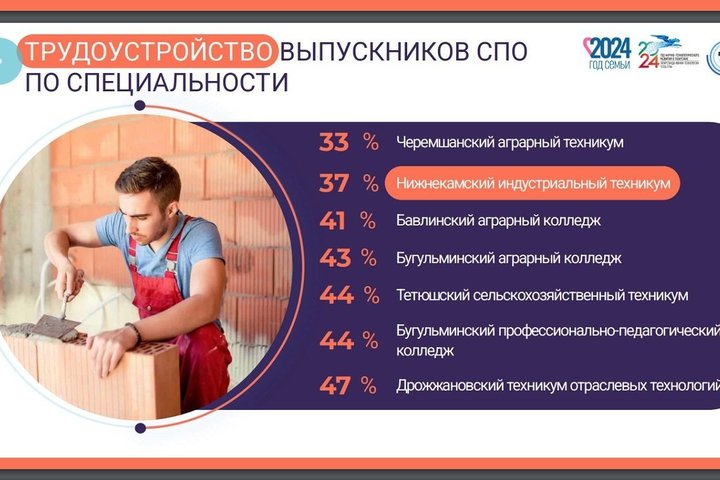
“Twelve secondary vocational education organisations, including 3 resource centres, fulfilled the admission targets by less than 95%, which indicates their insufficient career guidance, improper planning and lack of interaction with employers," he added a fly in the ointment. “I ask the leaders to strengthen their work in this direction.”
Even more unpleasant news was that out of 22,000 graduates of vocational education institutions, 75% of whom studied on a budgetary basis, only 68% were employed in their specialty. Despite that the percentage of employment of graduates of vocational education in Tatarstan is by 10% higher than the national average, there are many educational organisations in the republic where employment in the specialty is below 50%.
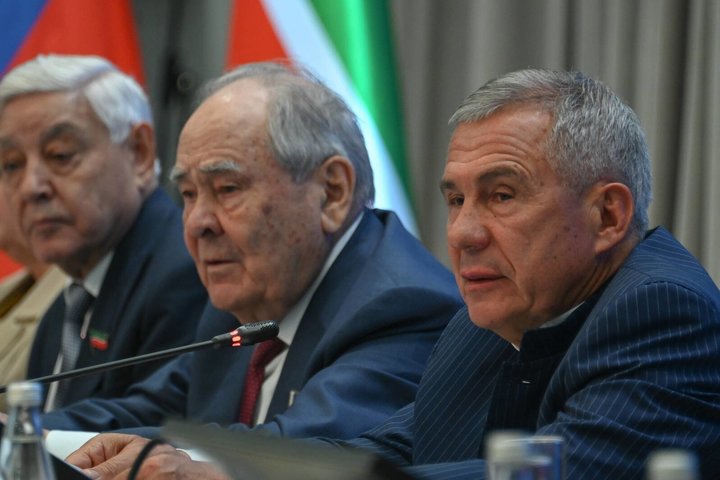
Ilsur Khadiullin suggested that the heads of these vocational schools, together with employers and local authorities, prepare proposals for revising training areas in favour of sought-after specialties. And Rustam Minnikhanov spoke even more harshly:
“I believe that it is not graduates who need to find jobs, but the heads of these vocational schools. They should be given a more suitable job for them. Why keep them? Why do we need them? What is 68%? We must employ at least 90%!”
He also demanded to hold personnel commissions and “see why we need such institutions”, refocusing them on training the specialists that are in demand.
The minister put on a bold face and promised to rectify the situation. He also took the opportunity and asked Rustam Minnikhanov to help close another gap in the vocational education system. He said that a number of institutions are ready to increase admission in the most popular training programs, but they cannot do this due to the poor condition or lack of dormitories at all. Popular educational organisations such as the Technical College named after Potashov in Naberezhnye Chelny, Kazan Aviation Technical College, Kazan Petrochemical College named after Lushnikov, Zelenodolsk Shipbuilding College do not have dormitories.
“Thanks to your support, Mr Minnikhanov, a program of major repairs of dormitories of vocational educational organisations has operated since 2020," Khadiullin recalled. “In three years, 8 facilities have been comprehensively repaired within the framework of the program, and in 2024, a comprehensive overhaul is to take place in three more vocational institution dormitories. In July of this year, a federal project was launched to repair vocational education institutions and their dormitories, and we are currently preparing an application for our colleges and technical schools to participate in it… Unfortunately, the federal project does not involve the construction of vocational education institutions or dormitories for them. If you approve, we, together with the ministries concerned, are ready to make proposals for the construction of dormitories for our educational organisations.”
Criminal schoolchildren
Ilsur Khadiullin spoke in detail about two problems that education workers are solving in cooperation with the Ministry of Internal Affairs. He said that in the first half of 2024 alone, 101 criminal cases and 42 offenses involving minors in the field of drug use and trafficking were investigated.
“The increase in crimes in Kazan, Naberezhnye Chelny, in the Bugulminsky, Almetyevsky, Buinsky, Verkhneuslonsky, Yelabuzhsky, Tetyushsky and Laishevsky municipal districts is of concern," he noted and added that the number of alcohol poisoning among minors has also increased: 38 such cases in January-June 2024.
Out of almost 499,000 students of schools and vocational schools, 50,200 are under internal control, and over 1,000 are registered in the Minors Affairs Department. In the “red” high-risk zone (those who are registered with the traffic police inspectorate, show signs of deviant behaviour, behave aggressively, have returned from closed educational institutions, as well as those who “participate in informal associations and organisations of an antisocial orientation”) — 1,900 students, and almost 7,700 are in the high-risk zone — that is, they can easily replenish this “red” zone.
Sad math
It failed to reverse the situation with a shortage of teachers by the beginning of the 2024/2025 academic year — the region currently lacks 2,300 teachers, despite that the annual graduation of teachers in higher and secondary vocational education programs is about 4,000 people.
“Only slightly more than half of university graduates who studied on a budgetary basis are employed in their specialty," the minister said. “Among graduates of pedagogical colleges, the percentage of employment is higher and is 85%.”
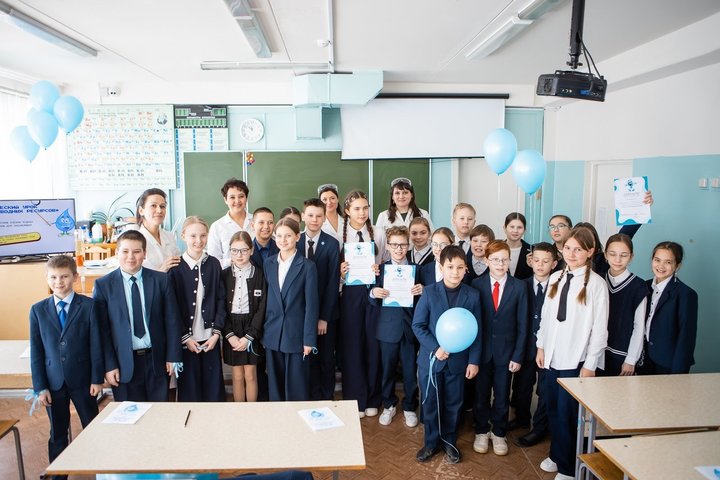
At the same time, there is an imbalance in the training of personnel and their needs — the just train the wrong specialists. In 2023, the graduation of teachers of mathematics and physics was many times less than the need, in 2024 nothing has changed.
“The issue of teacher shortage is often solved by increasing the workload," stated Ilsur Khadiullin. “Today, almost 32% of teachers have a workload of more than one and a half rates, including more than 50% of teachers of two key subjects — mathematics and Russian language. This cannot but affect the quality of their work and the training of students.”
And the minister also asked the rais of the republic to contribute to reducing the documentary burden on teachers (let us note that principals and head teachers of schools informed Realnoe Vremya on anonymous terms about endless requests and requirements to send various certificates and fill out various electronic forms from ... employees of the republican Ministry of Education and Science). He turned to Rustam Minnikhanov with a request to instruct the heads of districts, heads of ministries and departments to respect the rights of teaching staff:
“Namely, to exclude from the practice of administrative management the assignment of work unrelated to educational activities to them.”
East or West, home is best
Speaking at the August Pedagogical Council in Laishevo, Zhanna Khaliullina, the deputy director general for personnel management, organisational development and corporate governance of KAMAZ PJSC, urged its participants to convince school graduates to continue studying and working in Tatarstan.
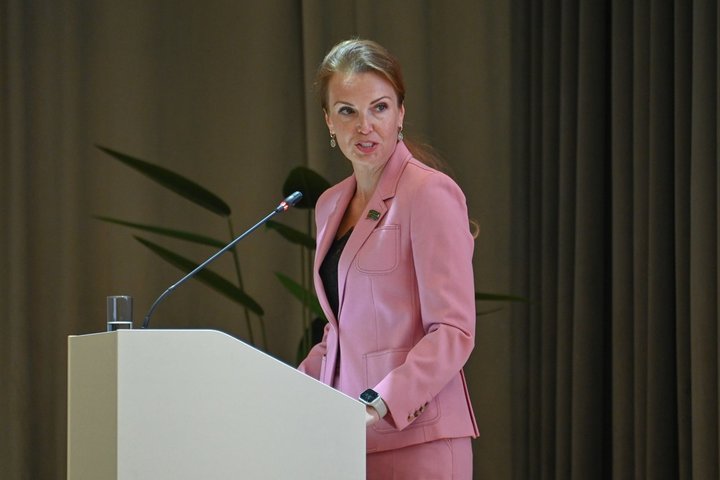
She spoke about the educational programs and initiatives of one of the largest employers in the republic, and then added:
“Together with you, we create excellent conditions for high-quality education and upbringing of our children, we create excellent opportunities for decent work and living standards in our republic. But, dear colleagues, all this is in vain if our children continue to leave. If we continue to consider leaving our native republic as the measure of our child's success, all efforts will be in vain.”
The rais of Tatarstan Rustam Minnikhanov, who was present at the meeting, supported her, noting that it was very important to solve this problem together with large employers of the republic.